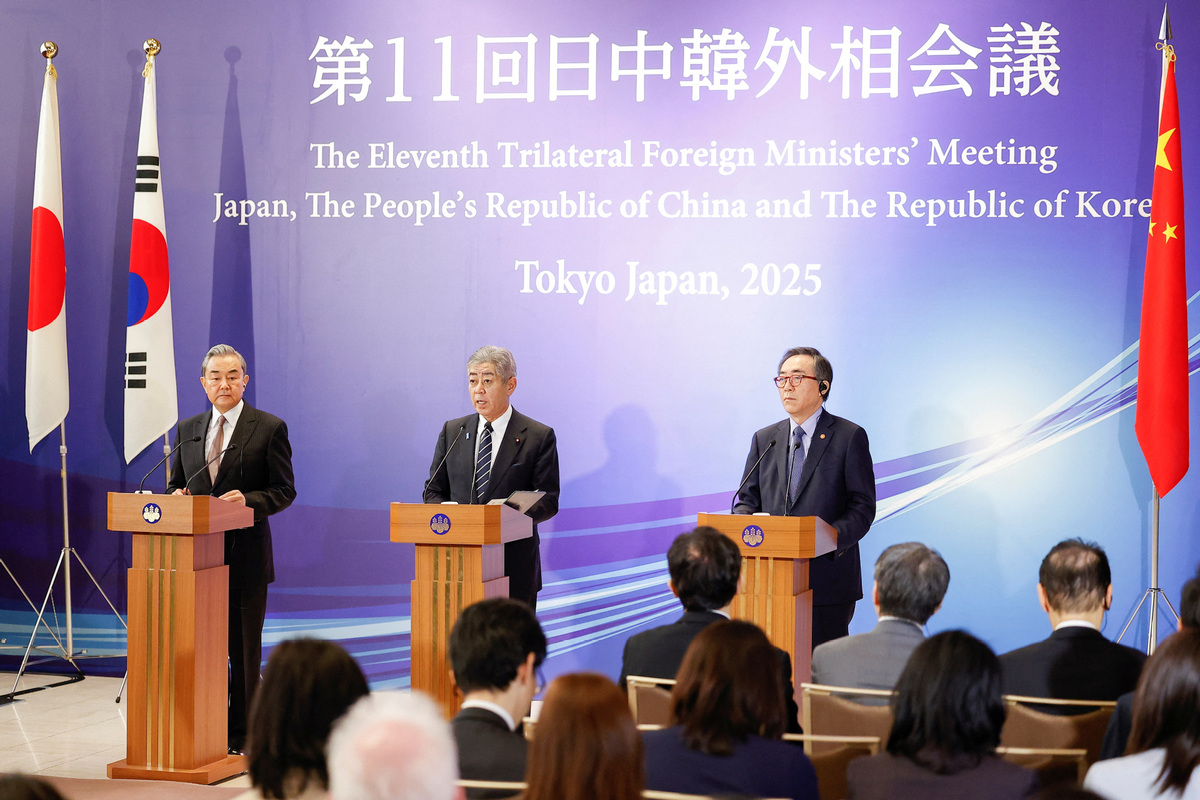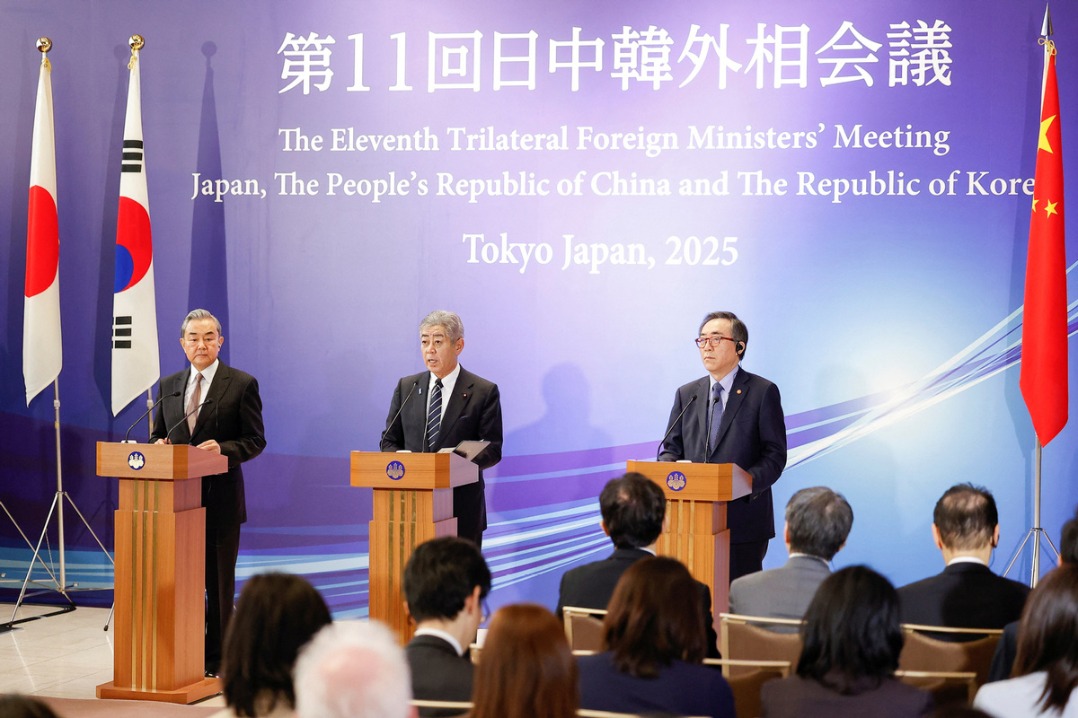Talks seen as key for E. Asia collaboration
Experts highlight push by Beijing, Tokyo and Seoul to work together more closely


An annual meeting between foreign ministers of China, Japan and South Korea provided a great opportunity for the countries to present the world a constructive and forward-looking vision, Japanese experts say.
During the 11th China-Japan-ROK Trilateral Foreign Ministers' Meeting in Tokyo on Saturday, China's Foreign Minister Wang Yi and his counterparts Takeshi Iwaya of Japan and Cho Tae-yul of South Korea agreed to strengthen communication, enhance mutual trust and work more closely together.
Ukeru Magosaki, director of the East Asian Community Institute in Japan, said: "Looking at the world today, we are in a period of great upheaval. If China, South Korea and Japan can navigate through this period of instability, there is no doubt that in about five years they will become a major center of the global economy."
China is at the forefront of the scientific and technological revolution, and Japan and South Korea should recognize that collaboration within a framework to ensure the stability and smooth operation of global industrial and supply chains serves their interests, said Magosaki, a former senior official in Japan's foreign ministry.
"If people-to-people exchanges become more active, it will become clear that cooperation between Japan, China and South Korea is the right path for these nations to pursue."
In the meeting the three countries moved to resume negotiations on a China-Japan-South Korea free trade agreement and to prepare for a leaders' meeting this year.
Kazuyuki Hamada, an international political economist and former parliamentary vice-minister for foreign affairs of Japan, said, "In this critical moment the meeting holds greater significance than ever."
Trilateral collaboration should extend beyond the Asia-Pacific region, serving as a stepping stone toward addressing global challenges, Hamada said.
"With the security environment becoming increasingly severe and the risks of environmental destruction and natural disasters rising rapidly, cooperation is more crucial than ever."
To prevent military conflicts, he urged mutual visits between defense officials and regular exchanges among disaster prevention experts from the three countries to pool information, including expertise.
Opposing protectionism
Kumiko Haba, former vice-president of the International Studies Association and a distinguished professor at Josai International University in Japan, attributed the renewed economic collaboration between Japan, China and South Korea in part to their efforts to counter the US move toward protectionism.
"To mitigate economic damage, Japan is increasingly looking to East Asian collaboration as a means of stabilizing its economy," Haba said.
She suggested that rather than focusing on military expansion, policies should shift toward economic transformation and greater people-to-people exchanges.
Hidetoshi Tashiro, chief economist with the Japanese consultancy Infinity LLC, said the United States appears to be "reverting to a 19th-century style of protectionism or mercantilism".
"Japan, China and South Korea have the opportunity to actively cooperate in advanced technology sectors, complementing each other's strengths to generate new drivers of economic growth."
On Saturday Wang and Iwaya co-chaired the sixth China-Japan High-Level Economic Dialogue in Tokyo, the first such dialogue between the two countries in about six years.
The dialogue "serves as a model for cooperation among non-US countries", Tashiro said.
If Japan and China use this momentum to advance a free trade agreement, "it will not only greatly contribute to their own economic development, but also shift the economic center of gravity from the US to East Asia, ensuring a smoother global economic cycle and fostering 21st century economic growth", he said.
Japan and China have the potential to foster extensive and in-depth collaboration in various economic spheres, he said. For example, combining Japan's sophisticated manufacturing technology with China's innovative artificial intelligence capabilities could create entirely new markets and tackle the challenges posed by their rapidly aging populations.
Takakage Fujita, secretary-general of the Association for Inheriting and Propagating the Murayama Statement, a Japanese civic group, said that rather than following US directives, Japan must fully embrace Asian diplomacy, starting with improving Japan-China relations.
"Without coexistence and mutual prosperity with China and the rest of Asia, Japan's success in the 21st century is simply impossible. Strong Japan-China relations are the cornerstone of Asia's greatest security guarantee, and Japan must never lose sight of this."
jiangxueqing@chinadaily.com.cn
































